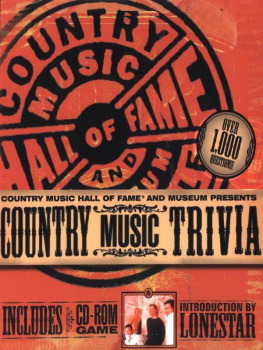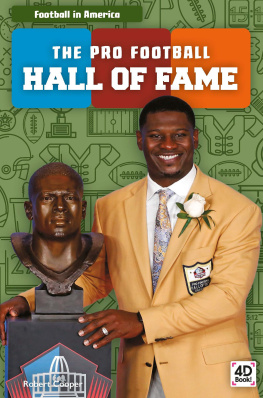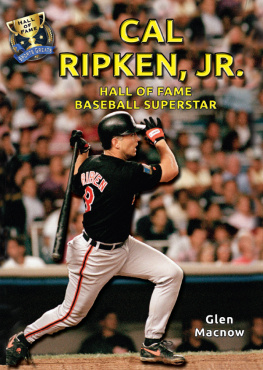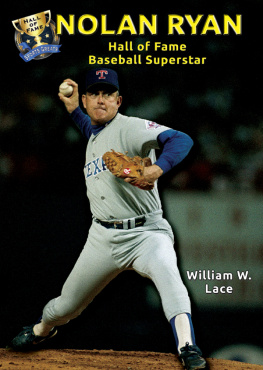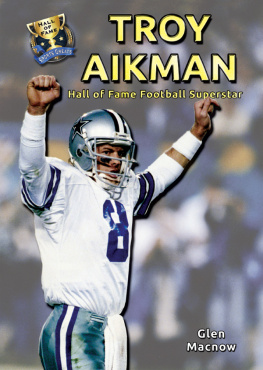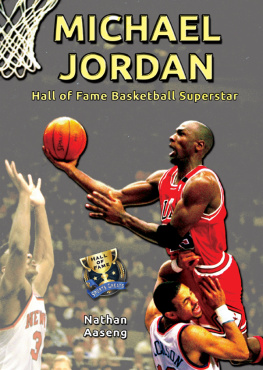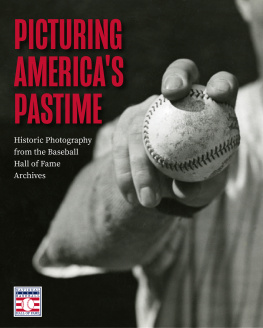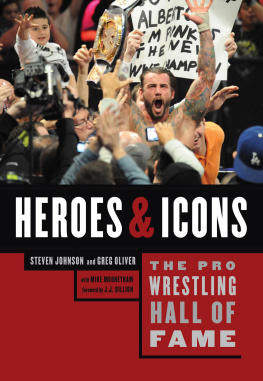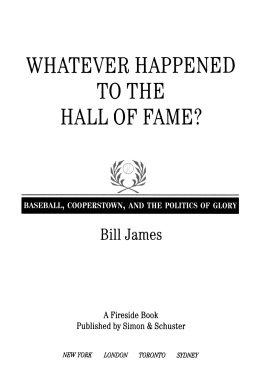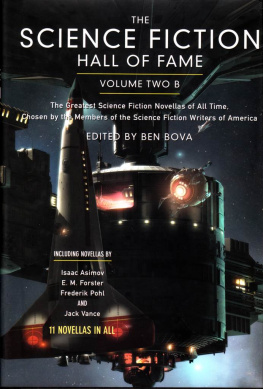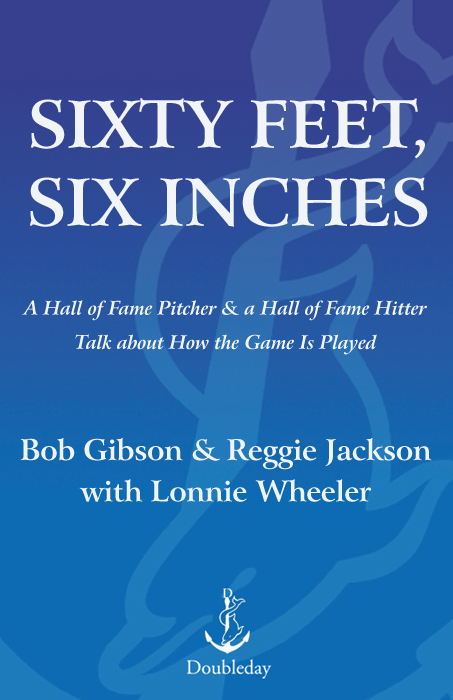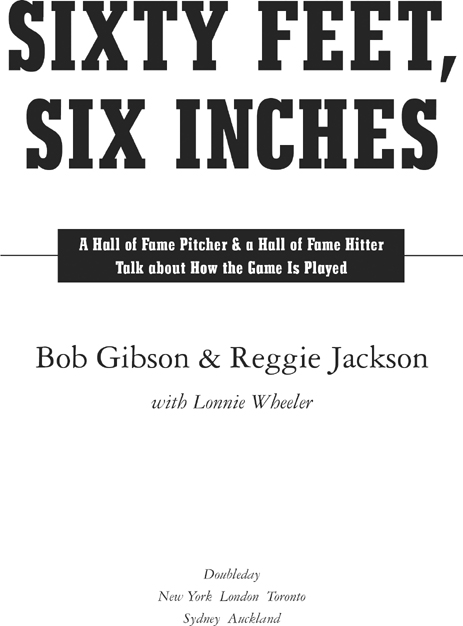INTRODUCTION
There was a time when Bob Gibson was loath to talk baseballto talk anythingwith a fellow from another team. It was part of his mystique, which translated into the games deadliest competitive edge, with whichalong with a pretty fair slider and fastballhe blew away more than three thousand big-league batters, won seven consecutive World Series games (completing every one), and dominated his own league so absurdly (there was that unimaginable 1.12 earned run average in 1968) that baseball officials, throwing up a backhanded salute to him and his near-peers, were compelled to tamp down the mound and squeeze the strike zone to give the failing, flailing hitters a more sporting chance.
These days, ol number 45 is more generous with his conversation, and in fact, for the purposes of this book, set out in search of a fraternal Hall of Famerone possessed of conspicuous oratorical and hitting skillswith whom to banter about the dynamics and mechanics, the complexities and perplexities, the ins, the outs, and the inevitable betweens of the game they both mastered. When he flipped through the pages of leading suspects, every one of them had Reggie Jacksons mug shot on it.
The game has no better talker than the tailors son from Philly, and no thinker more thorough. Nor has the World Series ever produced a greater batsman. Gibson being the Classics foremost starting pitcher, theres a sacred place in October where only the two of them have been. Theres a language, in turn, that only they can speak. And they do it here.
Their book is kick-back, nitty-gritty dialogue between leaders of the rival pitchers and hitters lobbies, an epic matchup of right vs. left and the hottest hard stuff against the wickedest rip. Its a give-and-take compressed from sixty-feet-six to facing chairs, a volley of views about sliders on the corner and fastballs in the back; about playing under pressure, through pain, and over the decades; about frank recollections and Frank Robinson; about full counts, full swings, full bases, and conventional wisdom thats simply full of it. Its about the ways the various parts of the plate are regarded by the guy with the ball, the guy with the bat, and dont forget the gentleman with the little whisk broom. Its about pitches that cant be hit and those that can, and how, in the case of the latter, one mans eleven oclock highlight can ruin anothers week, or year, even career. Its about what Jackson sees in Derek Jeter that he once observed in Roberto Clemente, and in Greg Maddux that so impressed him about Tom Seaver. Its not about life stories or stories of any sort, for that matter, unless they illustrate what occurs when, say, a Dick Allen, in Gibsons experiencecould be Manny Ramirez, same thingis presented with the loitering curveball that he happens to be on the lookout for.
Gibson and Jackson also share a characteristic candor that has not always contributed to their respective popularity but gussies up the printed page. I was, of course, more familiar with Gibsons legendary demeanor, having collaborated on his autobiography (Stranger to the Game) some years back. Because of that, folks ask all the time what the man is really like, because, well, there was that mystique, if you will. In deference to my favorite pitcher, I wont entirely blow his cover, other than to say that Bob Gibson was a genius of gamesmanship, a ballplayer to whom winning was a lifestyle (and to say, also, that he has apparently reached a lengthy period of accommodation and congeniality). If he seemed inordinately seriousand believe me, hes not, in the grander schemeits because seriously is how he took the game. The former Harlem Globetrotter bit off baseball by the chunk. And after half a century of chewing on it, he was ready to write his review.
His is a voice that still silences the room. In the matter of Gibson, its more than mere personality that has captivated so many people. They remain fascinated by the searing, uncompromised competitiveness he flaunted in his seventeen-year career with the Cardinals. In the decades since, Gibson has simmered into a living symbol of that very thing. Its particularly telling that the folks most infatuated by his flaming ferocity are cap-tipping fans of the old Yankees, Red Sox, and Tigers, the teams against which he proved his champions mettle.
The last of those World Series seasons happened to be 1968, the year that changed everything. The following summer was Jacksons third in the big leagues, and his most prolific in terms of both home runs and RBIs. It was also the year in which the national media learned that, if they could just find Oakland, they could back up their trucks to the young sluggers locker and load them with precious quotes and priceless color, the likes of which had never before been culled from a baseball clubhouse. In 1974, the year after he had been named MVP of both the American League and the World Series, Jackson was pronounced the worlds first superduperstar by Sports Illustrated. Three years later, the Yankees made him the richest player, as well. They were rewarded with daily headlinesnever mind the detailsand another World Series MVP performance, this time featuring home runs on four consecutive swings. When his new signature nickname was affixed, Mr. October glittered with such stunning effulgence that sporting celebrity had attained a new dimension.
If, as the generations turn, Gibson remains the standard for the old-school baseball ethic, Jackson occupies a similar station in terms of elocution and showmanship. He was a visionary in cultivating the advantages of media-friendliness, an unapologetic pioneer in the areas of style and self-marketing. The heavy cosmetics, however, obscured his studied dedication to the finer points of the game, which he applied with a surpassing intellect. For that matter, they obscured his emotional dedication to the game itself.
The chapters ahead reveal Jackson as the more ardent traditionalist of the two Cooperstowners, his sentimentality unchecked by the strain of pragmatism that tempers Gibsons. Now employed by the Yankees, the erstwhile straw that stirs the drink has carried forward his constant cogitation on ballplaying, all the while couching his impressions in the context of what hooked him as a dazzled youngster smitten by stars and influenced by idols. Among the idolized was a no-fooling fireballer for St. Louis.
Jackson memorized every move of the men he so admired, and put it all into practice. The game was in his head, and by the time he was finished, 563 home runs were on his rsum. Ultimately, Reggies gift of perception was the principal reason that Gibson pitched him this project. Served it right up into the big guys wheelhouse.
That, for the record, would make Jackson the first left-handed power hitter that Gibson ever served something up to.



